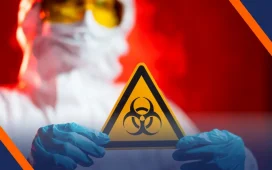The Pentagon’s security and oversight measures have failed to keep pace with the proliferation of military facilities that handle classified information and the personnel who work there, but the Defense Department does not have a systemic problem in keeping its secrets secret, a new review made public on Wednesday concludes.
Defense Secretary Lloyd J. Austin III ordered a 45-day review of Pentagon policies and procedures in April after a 21-year-old Air National Guardsman, Jack Teixeira, was accused of posting a trove of secret documents online.
He pleaded not guilty last month to six counts of federal criminal charges.
After Airman Teixeira’s arrest, the Pentagon tightened security controls on access to classified information. But Mr. Austin directed his top aides to determine how big a security problem the Pentagon had on its hands. Was Airman Teixeira an outlier who violated his oath not to disclose military secrets? Or was he symptomatic of a much larger problem within the military ranks that had gone undetected for years?
The review, which the Pentagon made public and described to reporters on Wednesday, concluded there was neither a “single point of failure” to explain Airman Teixeira’s disclosures nor any widespread breakdown in the military’s procedures for handling and overseeing confidential information.
In accepting the review’s findings and recommendations, Mr. Austin said that an “overwhelming majority” of Defense Department employees authorized to handle classified material were “trustworthy” and complied with procedures to safeguard those secrets.
Officials said a goal of the assessment was not to hinder information sharing between Pentagon personnel and other U.S. government employees working to ensure the nation’s security.
But the review found that the spectacular growth in military facilities and people authorized to handle classified information, particularly since the terrorist attacks on Sept. 11, 2001, had far outpaced the military’s ability to keep that information secure, a senior Defense Department official told reporters, speaking on the condition of anonymity to discuss the report’s major findings.
The review recommended that Pentagon departments and agencies tighten controls on access to classified information, ensuring that only those with “a need to know” are granted security clearances.
It also called for agencies to clarify for employees and their managers what the senior Defense Department official acknowledged was an often confusing and ambiguous set of policies that led to inconsistent handling and oversight of classified materials — both hard copies and electronic.
The review recommended that the Pentagon’s Defense Counterintelligence and Security Agency, which monitors the continuous vetting of personnel with security clearances, work more closely with security managers at defense facilities to ensure that officials are alerted to any potential red flags in an employee’s background.
It also recommended devoting more resources, adding technical and physical safeguards and assigning more people to tighten security around the handling of classified information, the officials said.
For example, there should be stricter measures to prevent the use of portable electronic devices inside classified work spaces, where confidential information or images could be photographed or recorded. The review also recommended strengthening “user activity monitoring” — essentially technology and procedures used to prevent people from snooping in classified materials they are not authorized to retrieve.
Some of the materials that Airman Teixeira is accused of posting online bore the most highly restricted classification markings, including “sensitive compartmented information” that could be stored and reviewed only in a protected facility.
Besides the federal criminal investigation, Frank Kendall, the secretary of the Air Force, has directed the service’s inspector general to look at the Air National Guard 102nd Intelligence Wing, where Airman Teixeira served as an information-technology specialist, and at how the airman was able to post hundreds of national security documents in a chatroom. From there, the documents eventually drifted to Twitter and the messaging platform Telegram.
New questions about the command surfaced in May, when a Justice Department filing revealed that Air Force officials caught Airman Teixeira taking notes and searching for classified material months before he was charged but did not remove him from his job.
On two occasions, in September and October 2022, Airman Teixeira’s superiors at Otis Air National Guard Base on Joint Base Cape Cod in eastern Massachusetts admonished him after reports that he had taken “concerning actions” while handling classified information. Those included stuffing a note into his pocket after reviewing secret information inside his unit, according to the court filing.
That information raised troubling questions about whether the military missed opportunities to stop or limit one of the most damaging intelligence leaks in recent years.
Airman Teixeira apparently retained his top secret security clearance after he was warned and subsequently received the second of two certificates for completing training intended to prevent the unauthorized disclosure of classified information.
Airman Teixeira’s lawyers have argued in court that their client naïvely believed that the material he shared with fellow users on Discord, a social media platform popular with gamers, would not be further disseminated, even though some of his online friends lived in foreign countries.










